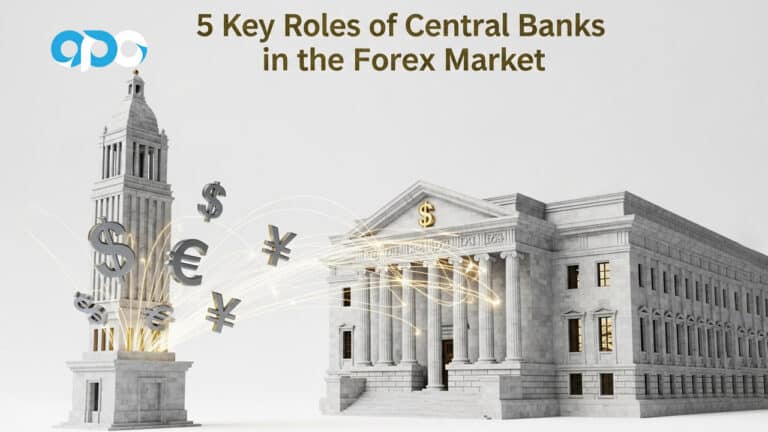The Forex market, known for its round-the-clock trading, operates 24 hours a day, five days a week. This continuous trading cycle allows traders worldwide to engage in currency exchange at any time, making Forex one of the most liquid and accessible markets globally. The absence of a centralized exchange enables trading to occur across different time zones, facilitating seamless transactions and price discovery around the clock. Choosing the right forex broker is crucial for navigating this highly flexible and profitable market efficiently.

Introducing the Major Forex Holidays
Forex holidays play a crucial role in shaping market dynamics and influencing trading strategies. These holidays, observed in various countries around the world, often coincide with significant cultural or historical events. Understanding the impact of Forex holidays is essential for traders to effectively plan their trades and manage their risk exposure. Let’s explore the major Forex holidays observed in different regions and their implications for the market.

Forex holidays in America
America observes several holidays that impact Forex trading, including:
- New Year’s Day (January 1): Celebrated as the first day of the year, New Year’s Day marks the beginning of new opportunities for traders. The holiday is often associated with optimism and renewed market activity as traders set their financial goals for the year ahead.
- Independence Day (July 4): Commemorating the adoption of the Declaration of Independence, Independence Day is a significant national holiday in the United States. Market sentiment may vary during this holiday, with reduced trading activity observed as traders take time off to celebrate.
- Thanksgiving Day (Fourth Thursday in November): Thanksgiving Day is a time for gratitude and reflection in the United States. Market volatility may increase leading up to the holiday as traders adjust their positions before the long weekend.
- Christmas Day (December 25): Christmas is a major holiday celebrated across the United States, marked by festivities and gatherings. Trading volumes tend to decline during the holiday season as market participants take time off to enjoy the festivities.
Each American holiday brings its own unique market dynamics, with traders adapting their strategies to navigate these periods of reduced liquidity and volatility.
Forex Holidays in the Eurozone
The Eurozone observes several holidays that influence Forex trading, including:
- New Year’s Day (January 1): New Year’s Day is celebrated across the Eurozone, heralding the start of a new year and fresh trading opportunities. Market sentiment may be buoyant as traders return from the holiday break with renewed enthusiasm.
- Easter Monday (Varies in April): Easter Monday, observed in many Eurozone countries, follows Easter Sunday and is a time for relaxation and reflection. Trading volumes may be lower on Easter Monday as market participants extend the holiday weekend.
- Labour Day (May 1): Labour Day celebrates the contributions of workers and is observed as a public holiday in several Eurozone countries. Market activity may be subdued as traders take time off to commemorate the occasion.
Each Eurozone holiday brings its own cultural significance and may impact market activity in different ways, requiring traders to adapt their strategies accordingly.
Forex Holidays in the United Kingdom
The United Kingdom observes several holidays that affect Forex trading, including:
- New Year’s Day (January 1): New Year’s Day marks the beginning of the year in the United Kingdom, with traders returning from the holiday break to assess market conditions and plan their trading strategies for the year ahead.
- Spring Bank Holiday (Last Monday in May): The Spring Bank Holiday is a time for relaxation and outdoor activities in the United Kingdom. Trading volumes may be lower as market participants take advantage of the long weekend to spend time with family and friends.
- Christmas Day (December 25): Christmas is a major holiday celebrated in the United Kingdom, characterized by festive gatherings and gift-giving. Trading activity tends to wind down during the holiday season as traders take time off to celebrate with loved ones.
Each UK holiday brings its own unique market dynamics, requiring traders to stay vigilant and adapt their strategies to navigate periods of reduced liquidity and volatility.
Forex Holidays in Japan
Japan observes several holidays that influence Forex trading, including:
- New Year’s Day (January 1): New Year’s Day is a time for reflection and renewal in Japan, with many families visiting shrines and temples to pray for good fortune in the coming year. Market activity may be subdued as traders take time off to celebrate the holiday.
- Golden Week (Late April to Early May): Golden Week is a series of consecutive holidays in Japan, including Showa Day (April 29), Constitution Memorial Day (May 3), Greenery Day (May 4), and Children’s Day (May 5). Market volatility may increase during Golden Week as traders adjust their positions ahead of the extended holiday period.
- Obon (Mid-August): Obon is a time to honor ancestors and celebrate their spirits returning to the earthly realm. Market activity may be lower during Obon as traders take time off to participate in traditional ceremonies and spend time with family.
Each Japanese holiday carries its own cultural significance and may impact market sentiment in different ways, necessitating adjustments to trading strategies.
Forex Holidays in Australia
Australia observes several holidays that affect Forex trading, including:
- New Year’s Day (January 1): New Year’s Day is celebrated across Australia, with many people attending parties and fireworks displays to welcome the new year. Market activity may be subdued on New Year’s Day as traders take time off to celebrate.
- Australia Day (January 26): Australia Day commemorates the arrival of the First Fleet and the founding of modern Australia. Market sentiment may vary during Australia Day, with reduced trading activity observed as traders participate in national celebrations.
- Anzac Day (April 25): Anzac Day honors the sacrifices of Australian and New Zealand soldiers who served in wars and conflicts. Market volatility may increase leading up to Anzac Day as traders adjust their positions before the public holiday.
Each Australian holiday brings its own cultural significance and may influence market dynamics in different ways, requiring traders to adapt their strategies accordingly.
Read More: Fundamental Analysis in Forex
Forex Holidays in Canada
Canada observes several holidays that impact Forex trading, including:
- New Year’s Day (January 1): New Year’s Day is a time for reflection and goal-setting in Canada, with many people making resolutions for the year ahead. Market activity may be subdued on New Year’s Day as traders take time off to celebrate.
- Canada Day (July 1): Canada Day celebrates the anniversary of Confederation and the founding of Canada. Market sentiment may vary during Canada Day, with reduced trading activity observed as traders participate in national festivities.
- Thanksgiving Day (Second Monday in October): Thanksgiving Day is a time for gratitude and family gatherings in Canada. Market volatility may increase leading up to Thanksgiving Day as traders adjust their positions before the long weekend.
Each Canadian holiday carries its own cultural significance and may impact market sentiment in different ways, necessitating adjustments to trading strategies.
Forex Holidays in Switzerland
Switzerland observes several holidays that influence Forex trading, including:
- New Year’s Day (January 1): New Year’s Day is celebrated across Switzerland, with many people attending parties and events to ring in the new year. Market activity may be subdued on New Year’s Day as traders take time off to celebrate.
- Swiss National Day (August 1): Swiss National Day celebrates the founding of the Swiss Confederation.
Market sentiment may vary during Swiss National Day, with reduced trading activity observed as traders participate in national celebrations and festivities. – Good Friday (Varies in April): Good Friday is observed in Switzerland, marking the crucifixion of Jesus Christ. Market volatility may increase leading up to Good Friday as traders adjust their positions before the long weekend.
Each Swiss holiday holds its own cultural significance and may impact market dynamics in various ways, necessitating traders to adapt their strategies accordingly.
Tools to Find Out About Forex Holidays
Staying informed about Forex holidays is essential for traders to plan their strategies effectively. Several tools and resources are available to help traders track upcoming holidays and their impact on the market:

Economic Calendars
Economic calendars are invaluable tools for Forex traders, providing a comprehensive schedule of economic events, including holidays. Popular economic calendars include:
- Forex Factory: Offering real-time updates and the ability to filter events by significance, Forex Factory’s calendar is a go-to resource for traders worldwide.
- Investing.com: With an extensive economic calendar covering holidays and major events, Investing.com provides traders with essential information to stay ahead of market developments.
- DailyFX: DailyFX’s economic calendar highlights key economic events and holidays, helping traders anticipate market movements and adjust their strategies accordingly.
Broker Notifications
Many Forex brokers offer notifications about upcoming holidays and changes in trading hours. Traders can subscribe to email alerts or check their broker’s platform for the latest information. Examples of brokers providing such notifications include:
- IG Group: IG Group keeps traders informed about market holidays and trading hour changes through email notifications and platform updates.
- OANDA: OANDA offers timely alerts about upcoming holidays and adjustments to trading schedules, ensuring traders are prepared for any disruptions.
- Saxo Bank: Saxo Bank provides notifications about market holidays and trading hour modifications, helping traders stay informed and plan their trades accordingly.
Financial News Platforms
Financial news platforms offer real-time updates on market holidays and their implications for trading. Traders can access these platforms to stay informed about upcoming holidays and changes in market conditions. Examples include:
- Bloomberg: Bloomberg’s comprehensive news coverage includes updates on market holidays and trading hour adjustments, helping traders make informed decisions.
- Reuters: Reuters offers timely news updates on holidays and market closures, allowing traders to stay ahead of potential disruptions.
- CNBC: CNBC’s financial news coverage includes insights into market holidays and their impact on trading, keeping traders informed and prepared for any changes.
Official Government Websites
Official government websites provide accurate information about public holidays in different countries. Traders can refer to these websites to find details about upcoming holidays and their impact on the Forex market. Examples include:
- USA.gov: USA.gov offers information about federal holidays in the United States, helping traders plan their trades around market closures.
- Gov.uk: Gov.uk provides details about public holidays in the United Kingdom, ensuring traders are aware of any disruptions to trading.
- Japan.go.jp: Japan’s official government website offers information about national holidays, allowing traders to anticipate market closures and adjust their strategies accordingly.
By utilizing these tools and resources, traders can stay informed about upcoming Forex holidays and plan their trading strategies effectively.
Effects of Forex Holidays on the Market
Forex holidays can significantly impact market dynamics, leading to changes in trading volumes, liquidity, and volatility. Understanding these effects is crucial for traders to adapt their strategies and manage their risk exposure effectively:
Reduced Liquidity
During Forex holidays, liquidity in the market tends to decrease as financial institutions and traders take time off. Reduced liquidity can lead to wider spreads and increased slippage, making it more challenging for traders to execute trades at desired prices.
Increased Volatility
Despite lower trading volumes, Forex markets may experience heightened volatility during holidays due to unexpected news events or speculative trading. Traders should be cautious of sudden price movements and adjust their risk management strategies accordingly.
Potential Price Gaps
Forex holidays often result in price gaps between the closing and opening prices, especially when significant news breaks during the holiday period. Traders should be prepared for potential gaps and consider implementing stop-loss orders to mitigate the risk of adverse price movements.
Read More:
Changes in Market Sentiment
Market sentiment can shift during Forex holidays, influenced by geopolitical events, economic data releases, or changes in investor sentiment. Traders should stay informed about global developments and be prepared to adjust their strategies in response to changing market conditions.
By understanding the effects of Forex holidays on the market, traders can anticipate potential challenges and opportunities and make informed decisions to optimize their trading performance.
Trader Planning in the Face of Forex Holidays
Effective planning is essential for traders to navigate Forex holidays successfully and capitalize on market opportunities. Here are some strategies to help traders prepare for holiday periods:
Plan Ahead
Traders should plan their trades well in advance of Forex holidays, taking into account potential disruptions to market liquidity and volatility. By anticipating holiday-related challenges, traders can develop robust trading strategies and risk management plans to mitigate potential losses.
Monitor Market Conditions
During Forex holidays, traders should closely monitor market conditions and stay informed about any developments that may impact trading. By staying vigilant, traders can identify emerging trends and adjust their strategies accordingly to capitalize on market opportunities.
Use Stop-Loss Orders
Implementing stop-loss orders is essential for managing risk during Forex holidays. Traders should set stop-loss levels based on their risk tolerance and market analysis to protect their capital from unexpected price movements or market volatility.
Diversify Trading Strategies
Diversifying trading strategies can help traders mitigate risk and maximize returns during Forex holidays. By utilizing a combination of technical analysis, fundamental analysis, and risk management techniques, traders can adapt to changing market conditions and capitalize on diverse trading opportunities.
Stay Informed
Staying informed about market developments and holiday schedules is critical for successful trading during Forex holidays. Traders should utilize reliable sources of information, such as economic calendars, news platforms, and broker notifications, to stay updated on market trends and events.
By incorporating these strategies into their trading plans, traders can navigate Forex holidays with confidence and achieve their trading objectives.
What is the significance of Forex holidays?
Forex holidays are days when financial markets are closed, resulting in reduced trading activity and liquidity. These holidays may be observed for cultural, religious, or national reasons and can impact market dynamics, trading volumes, and volatility.
How do Forex holidays affect trading strategies?
Forex holidays can influence trading strategies by reducing market liquidity, increasing volatility, and potentially causing price gaps. Traders may need to adjust their risk management techniques, trade execution timing, and position sizing to adapt to holiday-related challenges.
Can Forex brokers operate during holidays?
Forex brokers can operate during holidays, but their trading hours and services may be limited. Some brokers may offer reduced customer support or liquidity during holidays






